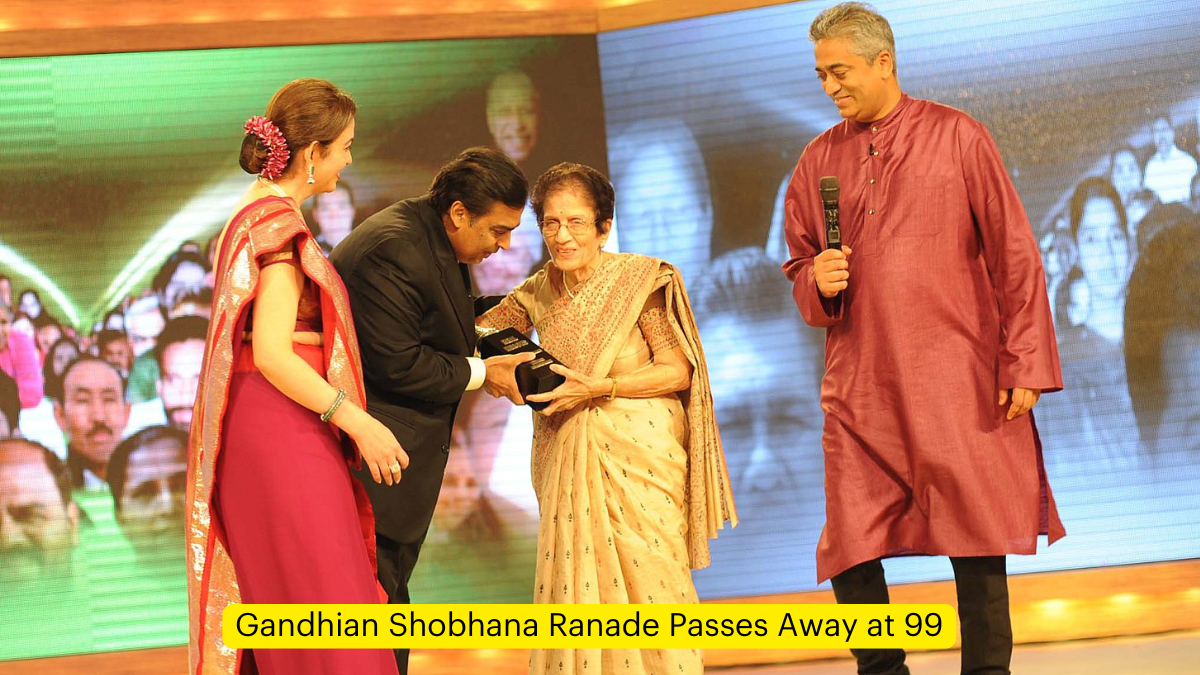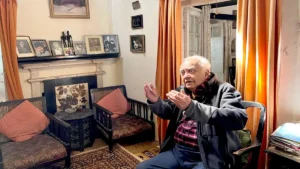The passing of Shobhana Ranade at the age of 99 in Pune marks the end of an era in India’s social reform movement. A renowned Gandhian and Padma Bhushan recipient, Ranade dedicated her life to uplifting the underprivileged, especially women and children, leaving an indelible mark on India’s social landscape.
Early Life and Gandhian Influence
A Fateful Meeting
At the age of 18, Shobhana Ranade had the life-changing experience of meeting Mahatma Gandhi. This encounter set the course for her lifelong commitment to Gandhian principles and social service.
Embodiment of Gandhian Values
Ranade’s life exemplified the core Gandhian values of simplicity, compassion, and dedication to social causes. Her approach to social work was deeply rooted in Gandhi’s philosophy of uplifting the marginalized and promoting self-reliance.
Contributions to Social Welfare
Empowering Women and Children
Ranade’s work primarily focused on empowering women and children across various parts of India. Her initiatives aimed at providing education, skills, and opportunities to those often overlooked by mainstream society.
Key Projects
- Adim Jati Seva Sangh: A program in the Northeast that empowered Naga women by teaching them to spin the charkha (spinning wheel).
- Maitri Ashram in North Lakhimpur, Assam: Another initiative aimed at community development in the northeastern region.
- Bal Griha and Balsadan at Saswad, Pune: Institutions caring for vulnerable girls.
- Hermann Gmeiner Social Centre at Shivajinagar: A pilot project of SOS Children’s Villages to support street children, providing education, nutrition, health services, counseling, and rehabilitation.
Personal Anecdotes and Character
The Aga Khan Palace Incident
An anecdote shared by historian Pandurang Balkawde illustrates Ranade’s character:
As a 13-year-old, Balkawde cycled to the Aga Khan Palace Gandhi Smarak but couldn’t afford the 25 paise entry fee. Ranade, happening to pass by, paid for his ticket, impressed by his effort to visit the historical site. She later engaged him in a discussion about what he had learned, emphasizing the importance of respecting great Gandhians.
Attention to Detail
Balkawde, who later interacted frequently with Ranade, recalls her calm demeanor and meticulous nature. He mentions how she would write numerous letters during train journeys and ensure they were posted at specific stations, demonstrating her commitment to communication and organization.
Legacy and Impact
Architect of Modern India
Ranade is remembered as an architect of modern India, particularly for her role in building institutions of social work. Her approach to social reform was holistic, addressing various aspects of community development.
Geographical Reach
Her work spanned across India, with significant contributions in the Northeast and Maharashtra. This wide geographical reach allowed her to address diverse social issues and cultural contexts.
Recognition
In 2011, Ranade was awarded the Padma Bhushan, one of India’s highest civilian honors, recognizing her lifelong dedication to social causes.




 James Van Der Beek Passes Away at 48 Aft...
James Van Der Beek Passes Away at 48 Aft...
 Travel Writer and Padma Shri Awardee Hug...
Travel Writer and Padma Shri Awardee Hug...
 Michael Nobbs Former Coach Of Indian Hoc...
Michael Nobbs Former Coach Of Indian Hoc...








